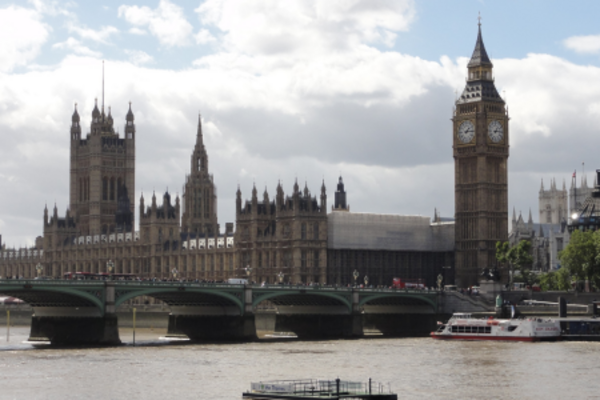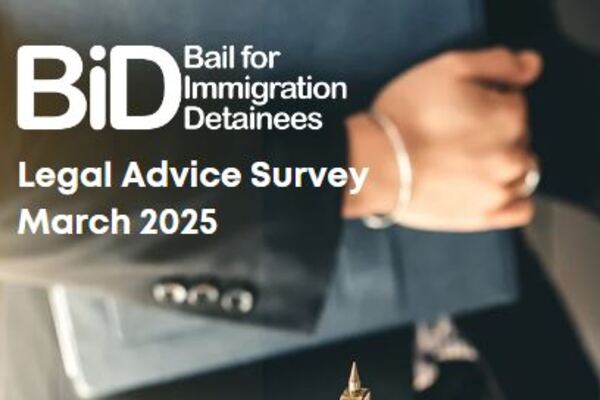Despite successive governments claiming to champion the rights of survivors of trafficking, existing protections for victims of trafficking are being rapidly reversed. The government recently introduced a policy that will lead to more potential victims of trafficking being detained for longer (indeed, the government itself admitted this may be a consequence of the policy) and it will go even further in plans contained in the Nationality and Borders Bill 2021.
The national referral mechanism?
The process for identifying and protecting victims of trafficking is called the National Referral Mechanism (NRM). Designated organisations known as First Responders have a duty to refer individuals to the NRM where they are concerned that the individual has been a victim of trafficking, and where the individual has provided informed consent. A number of statutory bodies and non-governmental authorities in the UK are First Responders including the Home Office and the police. Once an individual has been referred to the NRM they should receive a decision from the Competent Authority (the decision-making body that sits within the Home Office) within 5 working days stating whether or not there are reasonable grounds to believe they are a victim of trafficking. If this reasonable grounds decision is positive, the individual should be given a ‘recovery and reflection’ period for a minimum of 45 days. During that period, the competent authority must decide whether there are conclusive grounds to accept that the individual is a victim of trafficking. The individual cannot be removed from the UK until a conclusive grounds decision has been made.
Previously, an individual who received a positive ‘reasonable grounds’ decision would be released from detention unless they were considered to pose a threat to public order, which, at the time, was a reasonably high threshold. This meant that people would generally not be detained during the ‘recovery and reflection’ period, during which removal cannot take place.
However a new policy introduced on 25th May 2021 brought victims of trafficking within the much criticised Adults at Risk Policy. Once an individual is identified as a potential victim of trafficking, a ‘health needs assessment’ will be undertaken to assess their recovery needs and what support they require, and whether this can be provided in the detention centre or prison. After this has taken place the Home Office will balance the individual’s vulnerability against ‘immigration factors’ and make a decision of whether to release. This is likely to lead to many cases where people who would have been released under the previous policy will now remain in detention. To be clear, even where there are reasonable grounds for believing someone has been trafficked they can now be kept in detention on the basis that their needs, and the requirements of the recovery and reflection period, can be met in detention. Alongside specialist anti-trafficking organisations we repeatedly raised these concerns with the Home Office, the Independent Anti-Slavery Commissioner, and in parliament, but the government pushed ahead regardless, despite admitting that the change may lead to more people being detained.
The policy fails to acknowledge that being deprived of your liberty, indefinitely, in a prison-like setting (if not literally a prison) cannot be conducive to the ‘recovery and reflection’ of a trafficking survivor.
We are also concerned by changes introduced under the Nationality and Borders Bill that will dramatically reduce the rights and protections afforded to victims of modern slavery. Clause 51 of the bill seeks to disqualify people from the protections available under the Modern Slavery Act. 51(2) states that where an individual is disqualified, there will be no requirement to make a conclusive grounds decision and there will be no prohibition on removing that individual from the UK. This includes people who are deemed to be a ‘threat to public order’ or who are supposed to have made a claim ‘in bad faith’. Where the latter is disturbingly vague, the definition of a person who is a ‘threat to public order’ given at 52(3) is concerning in its specificity, as it includes any foreign national who has received a 12 month sentence. This will remove protections from hundreds, potentially thousands of people, including those whose criminal offences are directly attributed to their trafficking. Those individuals are often the most vulnerable and are likely to spend longer periods in immigration detention with even fewer rights. There is no reason why people should be excluded from the protections available to others in the Modern Slavery Act solely due to having committed an offence in the past. This will considerably undermine broader attempts to apprehend the perpetrators of human trafficking.
Moreover, clause 47 of the bill pushes potential victims to present all evidence up-front, and states that late evidence will be seen to damage credibility. This is despite the fact that the Home Office recognises the barriers to disclosure in its Modern Slavery guidance, which states:
“Victims’ early accounts may be affected by the impact of trauma. This can result in delayed disclosure, difficulty recalling facts, or symptoms of post-traumatic stress disorder.”
The bill also reduces the recovery and reflection period from 45 days to 30 days.
Having witnessed successive governments claiming to champion the rights of survivors of trafficking, (as Home Secretary, Theresa May described modern slavery as “the great human rights issue of our time”) it is alarming to see their rights and protections being dismantled so rapidly. As we have argued previously, many aspects of the Nationality and Borders Bill will lead to more people being detained, for longer. These changes do exactly the same, only they target a particularly vulnerable group.









